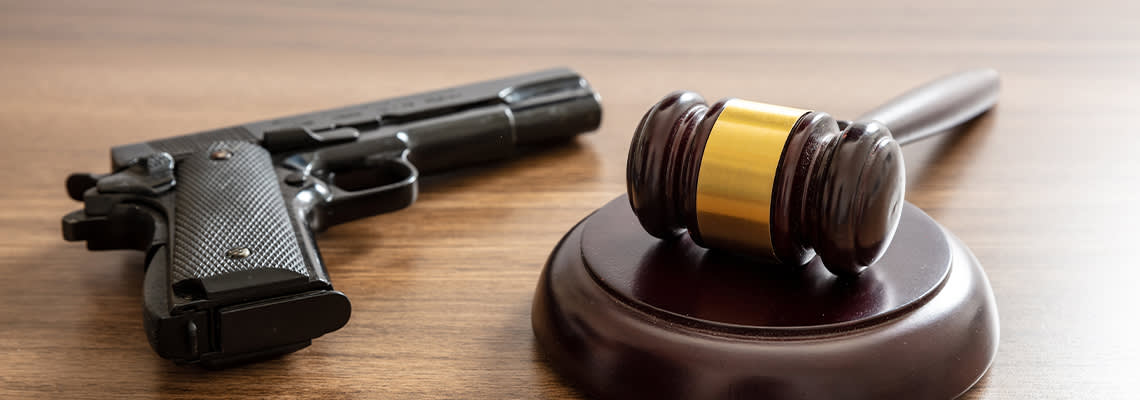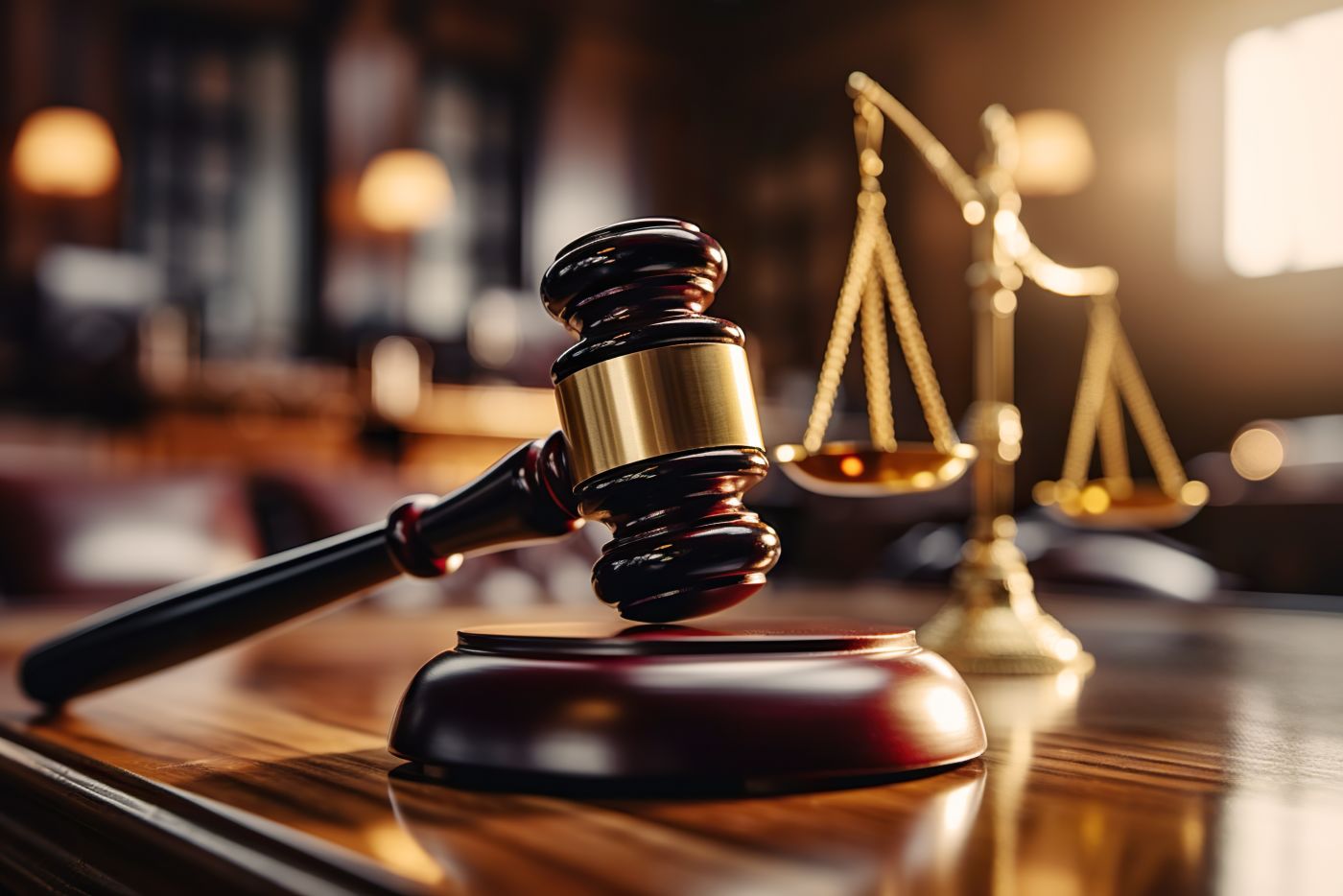
When facing a gun charge, the clock is ticking, and it’s essential to understand the federal statute of limitations that applies to your case. The statute of limitations sets a deadline by which the government must bring charges against an individual for a crime.
If the statute of limitations expires before the charges are filed, the defendant cannot be prosecuted for that particular offense. At The Oppenheimer Law Group, we regularly handle criminal defense cases involving gun charges and understand how vital it is for our clients to have clarity about these time limits.
In this article, we will discuss the federal statute of limitations on gun charges, what it means for your case, and how it applies under federal law, particularly in Florida. Our goal is to provide you with a clear understanding of how this statute affects the outcome of your case and your rights.
What is the Statute of Limitations for Federal Gun Charges?
The federal statute of limitations refers to the time period within which the government can bring charges against someone for violating federal law. In most criminal cases, if the government fails to file charges within this designated time frame, the defendant can no longer be prosecuted for the alleged offense.
Under federal law, the statute of limitations for gun charges can vary depending on the nature of the offense. For example, some gun crimes may have shorter time frames, while others may have longer ones.
It's important to remember that gun charges can range from possession of a firearm by a convicted felon to using a firearm in the commission of a violent crime. Each of these offenses may have its own statute of limitations.
With our criminal defense attorney at The Oppenheimer Law Group, we understand that one of the first things our clients often ask when facing a gun charge is how long the government has to file charges. Our firm will examine your case in detail and assess whether the statute of limitations could be an issue in your case.
Federal Statute of Limitations for Specific Gun Crimes
To give you an idea of how the statute of limitations applies to different federal gun charges, let’s take a look at the time limits for various offenses under federal law.
Unlawful Possession of a Firearm by a Felon
Under federal law, it is illegal for a convicted felon to possess a firearm. The statute of limitations for this charge is generally five years. If the government does not file charges within this period, the individual cannot be prosecuted for unlawful possession of a firearm by a felon.
Possession of a Firearm in Furtherance of a Crime of Violence or Drug Trafficking
One of the most serious federal gun crimes is possessing a firearm in furtherance of a crime of violence or drug trafficking. This charge carries a minimum sentence of five years in prison and can result in a much longer sentence depending on the circumstances.
For this charge, the statute of limitations is typically five years. However, if the possession of the firearm is related to a violent crime or drug trafficking offense, the statute of limitations for the underlying crime may apply, which could be longer.
Use of a Firearm in the Commission of a Federal Offense
Using a firearm during the commission of a federal offense is a serious criminal act. The statute of limitations for this crime is five years, but the clock starts ticking once the alleged offense is discovered.
For example, if a firearm is used in a bank robbery, the statute of limitations would begin to run from the date of the robbery, or when the crime is discovered, whichever comes later.
Federal Firearms Licensing Violations
Under federal law, individuals and entities engaged in the business of manufacturing, importing, or dealing firearms must obtain a Federal Firearms License (FFL). Violations of this law, such as operating without an FFL or submitting false information to obtain an FFL, generally carry a statute of limitations of five years.
Gun Trafficking Offenses
The statute of limitations for firearms trafficking offenses, which involve selling or transferring firearms in violation of federal law, is typically five years. This can include offenses related to selling firearms to prohibited individuals or crossing state lines with firearms in violation of federal law.
When Does the Statute of Limitations Begin?
The statute of limitations in a federal gun case typically begins on the date the alleged crime was committed. However, in certain criminal defense circumstances, the clock may not start running until the crime is discovered.
For example, in some gun-related crimes, the authorities may not immediately know that the firearm was used in the commission of a crime. In such cases, the statute of limitations may begin to run from the date the firearm was discovered or when the authorities have enough information to bring formal charges.
It's important to note that there are exceptions in some cases that can toll (pause) the statute of limitations, such as when the defendant is outside of the United States or the alleged offense involves concealment that prevents the government from discovering the crime.
As criminal defense attorneys, we closely monitor these nuances when handling cases for our clients. Understanding when the statute of limitations begins is crucial for developing a strong criminal defense strategy.
Can the Statute of Limitations Be Extended?
While the statute of limitations is generally set and cannot be extended, there are certain circumstances under federal law where the time limit can be extended. For example:
Fraud or Concealment: If the defendant conceals the crime or engages in fraudulent conduct to prevent the government from discovering the offense, the statute of limitations may be extended. This often applies when a defendant intentionally hides evidence or takes steps to obstruct an investigation.
Continuing Offense: In some cases, a gun-related offense may be classified as a continuing offense, meaning that the statute of limitations can be extended for as long as the offense continues. For example, if someone is trafficking firearms over a long period of time, the statute of limitations could be extended.
Tolling of the Statute: In cases where the defendant is absent from the country or cannot be located, the statute of limitations may be tolled (paused). Once the defendant returns or is located, the time limit will continue from where it left off.
At The Oppenheimer Law Group, we know that these exceptions can significantly impact the statute of limitations, so we work hard to investigate all aspects of your case to confirm your rights are protected.
Tolling and the "Discovery Rule"
As mentioned, tolling or delaying the statute of limitations may occur if the government cannot immediately discover the crime. In these situations, the statute of limitations may be paused until the crime is discovered, which is called the "discovery rule." This is especially relevant for gun charges that involve covert actions, such as smuggling firearms or trafficking.
For example, if someone is charged with trafficking firearms and it takes several years for the authorities to uncover the scheme, the statute of limitations may not begin to run until the trafficking operation is discovered.
If you’re facing charges for a federal gun crime, it’s essential to understand how the statute of limitations could affect your case. The sooner you seek legal counsel, the sooner you can determine whether the statute of limitations is a factor in your defense strategy.
Impact of the Statute of Limitations on Your Defense
The statute of limitations can play a crucial role in your criminal defense strategy. If the statute of limitations has expired for your offense, we can work to have the charges dismissed. This is often a significant advantage in a gun case, as federal gun crimes carry serious penalties, including lengthy prison sentences.
At The Oppenheimer Law Group, we analyze each case from every angle. If we believe the statute of limitations is an issue, we will bring it to the court's attention, potentially leading to a favorable outcome for you. Our goal is to provide effective criminal defense and help our clients avoid the severe consequences associated with federal gun charges.
Statute of Limitations and Federal vs. State Charges
While we’ve focused on the federal statute of limitations for gun charges, it’s also important to understand that certain gun offenses can be prosecuted under both federal and state law. In these cases, both federal and state statutes of limitations may apply, depending on the circumstances of the case.
In Florida, for example, some gun-related offenses may also be prosecuted under state law, which may have different statutes of limitations than federal law. Our firm is experienced in handling both state and federal gun charges and can help you understand the specific time limits that apply in your case.
The First Steps
At The Oppenheimer Law Group, we are committed to providing you with comprehensive criminal defense. We’re proud to serve Orlando, Tampa, Clearwater, St. Petersburg, The Villages, Daytona Beach, Cocoa Beach, and Melbourne, Florida, as well as Puerto Rico. Call today.

